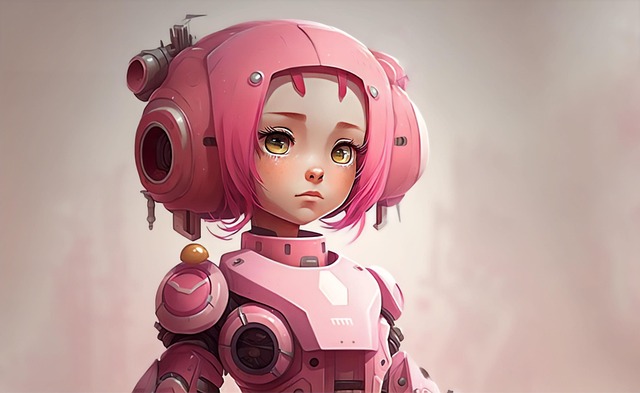# AI Technology Revolution: Redefining Industries and Enhancing Everyday Experiences for All
The advent of artificial intelligence (AI) technology has ushered in a transformative era across various sectors, redefining how businesses operate and enhancing the daily lives of individuals. From healthcare to finance, AI’s impact is both profound and far-reaching, as it streamlines processes, improves decision-making, and fosters innovation. This article delves into the ways AI is revolutionizing industries and enriching everyday experiences, highlighting its significance in today’s world.
## Transforming Industries: A New Paradigm
Industries that once relied heavily on manual processes are now embracing AI to optimize their operations. In manufacturing, for instance, AI-driven automation and predictive maintenance have revolutionized production lines. Robots equipped with machine learning algorithms can analyze data in real-time, predicting equipment failures before they occur, thereby reducing downtime and maintenance costs. This shift not only enhances productivity but also ensures higher quality standards, as machines can perform repetitive tasks with precision.
Healthcare is another sector experiencing a seismic shift thanks to AI. Advanced algorithms are now capable of analyzing vast amounts of medical data, leading to improved diagnostics and personalized treatment plans. For example, AI systems can evaluate medical images with remarkable accuracy, assisting radiologists in identifying anomalies that may be overlooked. Furthermore, AI-powered chatbots are providing patients with immediate assistance, answering queries, and even scheduling appointments, thereby streamlining the patient experience.
The finance industry is also witnessing a significant transformation through AI technology. Automated trading systems, powered by sophisticated algorithms, analyze market trends and execute trades at lightning speed, making investment strategies more effective. Additionally, AI is enhancing risk assessment by analyzing historical data and identifying patterns that may indicate potential fraud. This capability allows financial institutions to respond swiftly to threats, safeguarding both their assets and their clients’ investments.
## Enhancing Everyday Experiences: AI in Daily Life
Beyond industrial applications, AI technology is increasingly woven into the fabric of everyday life. Smart home devices, for instance, have become ubiquitous, allowing individuals to control their environments with ease. Voice-activated assistants, such as Amazon’s Alexa and Google Assistant, enable users to manage tasks, play music, and even control lighting and temperature through simple voice commands. This hands-free convenience not only enhances comfort but also promotes energy efficiency by optimizing home systems based on user habits.
Transportation is another area where AI is making strides to improve daily experiences. Ride-sharing apps like Uber and Lyft utilize AI algorithms to match drivers with passengers efficiently, reducing wait times and optimizing routes. Moreover, the development of autonomous vehicles promises to redefine how we commute, potentially reducing traffic congestion and enhancing safety on the roads. As AI continues to evolve, the prospect of smart cities, where traffic flows are managed in real-time, becomes increasingly tangible.
Education, too, is benefiting from AI advancements. Adaptive learning platforms are leveraging AI to tailor educational content to individual student needs, ensuring a personalized learning experience. By analyzing student performance data, these systems can identify areas where learners struggle and provide targeted resources to help them succeed. This approach not only fosters better learning outcomes but also empowers educators to focus their efforts where they are needed most.
## Ethical Considerations and Future Implications
While the benefits of AI technology are substantial, ethical considerations must also be addressed as its integration into society deepens. Concerns about data privacy, algorithmic bias, and job displacement are at the forefront of discussions surrounding AI. Ensuring that AI systems are developed and implemented responsibly is crucial to maintaining public trust and safeguarding individual rights. Policymakers and industry leaders must collaborate to establish guidelines that promote transparency and accountability in AI applications.
Additionally, the future implications of AI technology are vast and complex. As AI continues to advance, it is likely to create new job opportunities even as it automates certain tasks. The demand for AI specialists, data scientists, and ethical AI auditors is expected to grow, highlighting the need for educational institutions to adapt their curricula to prepare the workforce for this evolving landscape. Emphasizing STEM education and fostering interdisciplinary skills will be vital in equipping individuals with the tools they need to thrive in an AI-driven economy.
Furthermore, the potential for AI to address global challenges cannot be overlooked. From climate change to healthcare accessibility, AI has the capacity to analyze data at scale and offer innovative solutions. For instance, AI can optimize energy consumption in smart grids or predict the spread of diseases, enabling proactive measures to be taken. Harnessing AI’s capabilities for social good will require collaboration across sectors, ensuring that technological advancements benefit society as a whole.
## Conclusion
In conclusion, the AI technology revolution is redefining industries and enhancing everyday experiences in ways previously thought unimaginable. As businesses leverage AI to optimize operations and individuals enjoy the convenience of smart technologies, the transformative potential of AI is becoming increasingly evident. However, navigating the ethical landscape and preparing for future implications are essential steps in ensuring that AI serves as a force for good. By embracing the opportunities presented by AI while remaining vigilant about its challenges, society can harness this powerful technology to create a better, more efficient world for all.











